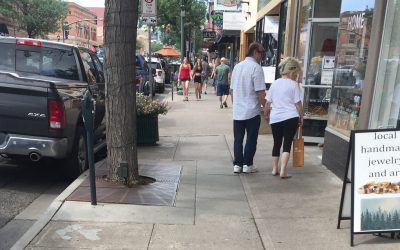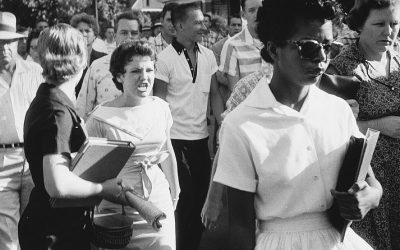By William H. Benson
The Parallel Lives
Of The NOBLE AMERICAN RELIGIOUS THINKERS AND BELIEVERS:
Roger Williams VS. Cotton Mathers
NEW ARTICLES
Mexico’s Revolution
Porfirio Díaz assumed the office of President of Mexico, on November 28, 1876, and for the next thirty-four years, he acted as the nation’s Strong Man, a tyrant, a despot, an autocrat. He won elections in 1877, 1884, 1888, 1892, 1896, 1900, 1904, and 1910.
Díaz’s rule was by force. His slogan was “Pan o palo,” meaning “Bread or Bludgeon.”
The Latin-American historian from California, Lesley Bird Simpson, wrote this about Porfirio Díaz, in his book Many Mexicos, “The benefactors of Díaz’s tyranny and strong-armed rule were to enjoy the most efficient despotism ever seen in the western world.” How did he do that?
Simpson says, “He gave his generals little jobs and restored them to their rightful place at the public trough; he kept them apart and played them off against each other.”
Díaz set up the Rurales, a national police force composed of gunmen from the cities and towns loyal to him only. “They were given showy uniforms, good salaries, and the power to shoot on sight, and no questions asked.”
By them, he eradicated the bandits. “Mexico was now the best policed country in the world.”
Díaz next encouraged foreigners from the United States, England, and France to bring money to Mexico, to build railroads, mines, smelters, and to set up massive plantations where the well-healed hacendados grew coffee, sugar, and bananas. “The foreigner was king.”
Soon, “There was no law but the will of Porfirio Díaz. Elections were such a farce that hardly anyone took the trouble to vote.”
Then, “Between 1883 and 1884, Díaz gave away to foreigners and friends 134,500,000 acres of the public domain, about one-fifth of the entire area of the Republic. Only a smattering of the Indian communities had any land whatsoever.” Foreigners clamored to grab even that land.
This was a massive plunder, “a denial of elementary justice to a large part of the population.”
In essence, Porfirio Díaz was skillful at political manipulation. He kept the church under his control. He pampered foreign investors. He crushed and silenced all opposition. He controlled the generals. He protected the wealthy, the families that owned the huge haciendas.
Simpson writes, “As the years rolled by, Mexico lay quiet in her straight jacket.”
In 1908, a young businessman from a wealthy family in Coahuila, just south of Texas, named Francisco Madero, wrote a book, The Presidential Succession in 1910. In it, he asked an innocent question, “who would succeed Díaz?” What? Will Díaz not live forever?
Although Madero stood only five feet, two inches tall, spoke in a squeaky voice, and lacked biceps, he dared to mobilize a political campaign for himself as Mexico’s next President. His slogan, Effective suffrage, No re-election! Enthusiastic crowds followed him across Mexico.
On September 30, 1910, Porfirio Díaz won the election. His Rurales jailed Madero for four months, but while incarcerated the young man wrote his “Plan of San Luis Potosi,” calling for a revolt against Díaz. Madero escaped prison on October 6, 1910, and fled to San Antonio, Texas.
There, he learned that others—in pockets around Mexico—also wanted a revolution: two men from the state of Chihuahua, in northern Mexico, Pascual Orozco and a vicious bandit nick-named Pancho Villa; and also Emiliano Zapata, from the state of Morelos, south of Mexico City.
Zapata urged the Indians to take back their land. His motto: Land and Liberty, and Death to the Hacendados! He wore a leather belt, slung over a shoulder, lined with bullet cartridges.
Madero urged the armies to revolt against Díaz’s regime on November 20, 1910.
Orozco and Villa’s armies pushed aside Díaz’s army at Ciudad Juarez, south of El Paso, and marched to Mexico City. Porfirio dated his resignation letter May 23, 2011, and fled to Paris.
Mexico’s citizens celebrate November 20, the anniversary of when Mexico’s Revolution began. Next time, I will look at how Mexico’s Revolution progressed over the following decade.
Imitating Shakespeare
Strange how certain books captivate my interest, others not as much. I find myself going back again and again to reread Mark Forsyth’s 2013 book, “The Elements of Eloquence.” In Forsyth’s “Preface,” he writes, “Shakespeare was not a genius. He was the most...
2024 Election
Abraham Lincoln of Illinois was elected President of the United States of America on November 6, 1860, for a four-year term. One year later, on November 6, 1861, Jefferson Davis of Mississippi was elected President of the Confederate States of America for a six-year...
Allen Guelzo’s “Our Ancient Faith,” Continued
Allen Guelzo, history professor at Princeton, tells a story about Lincoln that he included in his recent book, “Our Ancient Faith: Lincoln, Democracy, and the American Experiment.” Abraham Lincoln issued the Emancipation Proclamation on September 22, 1862, one...
Allen Guelzo and Abraham Lincoln’s religious faith
Two weeks ago in these pages, I discussed Allen Guelzo’s recent book, published on February 6, 2024, entitled, “Our Ancient Faith: Lincoln, Democracy, and the American Experiment.” In it, the Civil War historian, Allen Guelzo, wrote a series of enlightening...
Allen Guelzo’s “Our Ancient Faith”
When driving to destinations from home and back, I occupy my time by listening to YouTube videos of Civil War historians on my mobile phone. I am curious to hear their ideas and stories. The best crop of Civil War historians today, in my estimation, include:...
Habits
Universities opened their doors a week or two ago. Freshman students moved into their dorm rooms, met their roommates, hung pictures on the walls, and completed their class schedules. Most students want to do well, even just ok, at college, but not everyone does....
Older Posts
About writing and how to improve yours
Students will walk back into school soon and settle themselves into a small desk. Once seated, each girl and each boy will stare at a series of math story problems, or long pages of difficult-to-read text on science or history, plus the dreaded weekly compositions in...
People and their specializations
During the first World War, Henry Ford brought suit against the “Chicago Tribune,” because a reporter wrote that Ford was an “ignoramus.” At the trial, the newspaper’s attorneys peppered Ford with trivia questions, each designed to prove Ford’s ignorance. To each...
Thoughts on Jack Nicholson
Columbia Pictures released “Easy Rider” on July 14, 1969, fifty-five years ago last Sunday. I missed seeing it that summer, because I was busy on the farm driving a 92 Massey Harris combine in wheat harvest. I missed the film later, because I was busy my sophomore...
Frederick Douglass’s Speech, July 5, 1852
At the inception of America’s Revolutionary War against King George III and Parliament, certain Pennsylvania Quakers urged a policy of abolishment of slavery within their colony. In 1775, a Quaker named Anthony Benezet founded the Pennsylvania Society for the...
Incarceration of celebrities and a president
In 2022, a jury convicted Elizabeth Holmes, founder of biotech firm Theranos, of four counts of defrauding investors. A judge sentenced Holmes to 11 years and 3 months in prison. The film producer Harvey Weinstein was declared guilty of inappropriate relations with...
Desegregation at Little Rock’s Central High School in 1957
Last time in these pages I discussed the Supreme Court’s decision in the 1954 Brown v. Board of Education case, out of Topeka, Kansas. It attempted to rollback the premise that, if schools were “equal” in quality, then they may remain “separated” between blacks and...

One of University of Northern Colorado’s 2020 Honored Alumni
William H. Benson
Local has provided scholarships for history students for 15 years
A Sterling resident is among five alumni selected to be recognized this year by the University of Northern Colorado. Bill Benson is one of college’s 2020 Honored Alumni.
Each year UNC honors alumni in recognition for their outstanding contributions to the college, their profession and their community. This year’s honorees were to be recognized at an awards ceremony on March 27, but due to the COVID-19 outbreak that event has been cancelled. Instead UNC will recognize the honorees in the fall during homecoming Oct. 10 and 11……
Newspaper Columns
The Duodecimal System
For centuries, the ancient Romans calculated sums with their clunky numerals: I, V, X, L, C, D, and M; or one, five, ten, 50, 100, 500, and 1,000. They knew nothing better.
The Thirteenth Amendment
On Jan. 1, 1863, President Abraham Lincoln signed the Emancipation Proclamation, and by it, he declared that “all persons held as slaves” within the rebellious states “are and henceforward shall be free.” Lincoln’s Proclamation freed some 3.1 million slaves within the Confederacy.
The Fourteenth Amendment
After Congress and enough states ratified the thirteenth amendment that terminated slavery, Congress passed the Civil Rights Act of 1866. This law declared that “all people born in the United States are entitled to be citizens, without regard to race, color, or previous condition of slavery or involuntary servitude.” The Act equated birth to citizenship.
The New-York Packet and the Constitution
Jill Lepore, the Harvard historian, published her newest book a month ago, These Truths: A History of the United States. In a short introduction, she describes in detail the Oct. 30, 1787 edition of a semi-weekly newspaper, The New-York Packet.
Mr. Benson’s writings on the U.S. Constitution are a great addition to the South Platte Sentinel. Its inspiring to see the history of the highest laws of this country passed on to others.
– Richard Hogan
Mr. Benson, I cannot thank you enough for this scholarship. As a first-generation college student, the prospect of finding a way to afford college is a very daunting one. Thanks to your generous donation, my dream of attending UNC and continuing my success here is far more achievable
– Cedric Sage Nixon
Donec bibendum tortor non vestibulum dapibus. Cras id tempor risus. Curabitur eu dui pellentesque, pharetra purus viverra.
– Extra Times
FUTURE BOOKS
- Thomas Paine vs. George Whitefield
- Ralph Waldo Emerson vs. Joseph Smith
- William James vs. Mary Baker Eddy
- Mark Twain vs. Billy Graham
- Henry Louis Mencken vs. Jim Bakker









